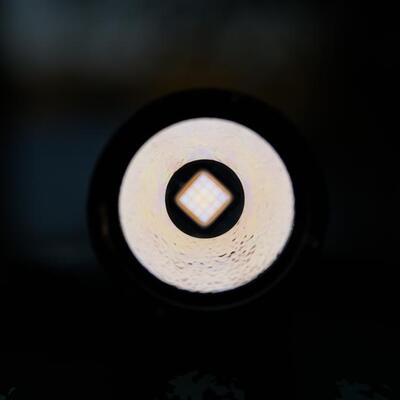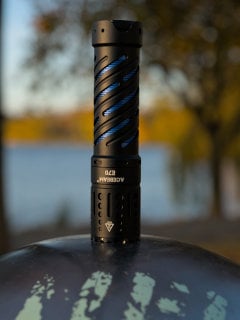What’s inside the recalled Skilhunt H150
https://zakreviews.com/h150-repair.html
I took apart my H150 to better understand the RPP short, show what else is inside, and attempt to make it safe to use.
#flashlight #headlamp #skilhunt #recall #h150 #repair #teardown #disassembly @flashlight@lemmy.world @flashlight@kbin.social
I could see this as another casualty of lumenitis. CPF used to be wary of unprotected calls and preferred protected ones. Today’s high powered lights make that problematic.
A lot of older lights didn’t have LVP. AA/14500 lights never did until recently, and usually had terrible mode spacing with 14500.
Unprotected cells aren’t required for any Skilhunt lights. I have H10s because they had the highest capacity available when I bought them, but I’d likely buy unprotected button-top F12s if I needed more 14500s. True protected 14500s are too long for most AA battery cases, though Skilhunt, Acebeam, and others have been selling 14430s as protected 14500s.
14430+protection seems like a good way to do it. I wish someone would do similar for 18650 and 21700. The protection is not just against undervoltage. It’s also against shorts, as matters here.
The issue with protected cells is that they don’t make allowances for going into momentary load territory that the cell can handle safely. I have no qualms pulling 20A from a 30Q for a moment, but a lot of 18650 protection would clamp down at the 15A CDR. I’m fairly sure that I’m not alone a willingness to give up a few hundred mAh from my 18650s to get 18500’s wearing funny hats **if ** we could get the amps an unprotected cell allows while getting protection from actual shorts.
Sadly, 21700’s would be a problem. While 14430 and 18500 are (somewhat) standard sizes that can easily be shimmed to 14500/18650 size, there’s no slightly-shorter 21mm cell. Most 21700’s are made into battery packs that have that protection as part of the pack, so there’s no need for such protection on the cell. And I don’t think there’s enough flashlight enthusiasts and vapers to create a new standard.
The easy solution is for flashlights to be a few millimeters longer and flexible about the cells they accept. That’s true of the H150, as an example; it accepts all 14500s, or would if not for the RPP short.
Not wrong, but “a few millimeters” means a lot more for a 14500 light than for an 18650/21700 light. While many may think the ~8mm difference in length between the D4V2 and D4K isn’t much, it’s enough for some folks (myself included) to sacrifice the runtime.
More importantly, it’s harder to accommodate a wider range of lengths without getting some rattle on shorter cells. Not an insurmountable problem, but definitely a consideration. The range required to take protected/USB-charging cells is a bit wider; >10% of the cell length, and a much larger percentage of the travel length of the spring. Dual-spring helps by splitting that across two springs, but has limits.
I don’t think I’ve seen a protected 14500 over 52mm, unlike some of those 21700 abominations (78mm for the Acebeam 21700+powerbank).
2mm seems worth it to me for broad compatibility in 14500 size lights, and some popular 14500 lights like the M150 are already pretty omnivorous with batteries. The m150 accepts 52mm protected cells, protected 14430s, and flat-top 14500s.



